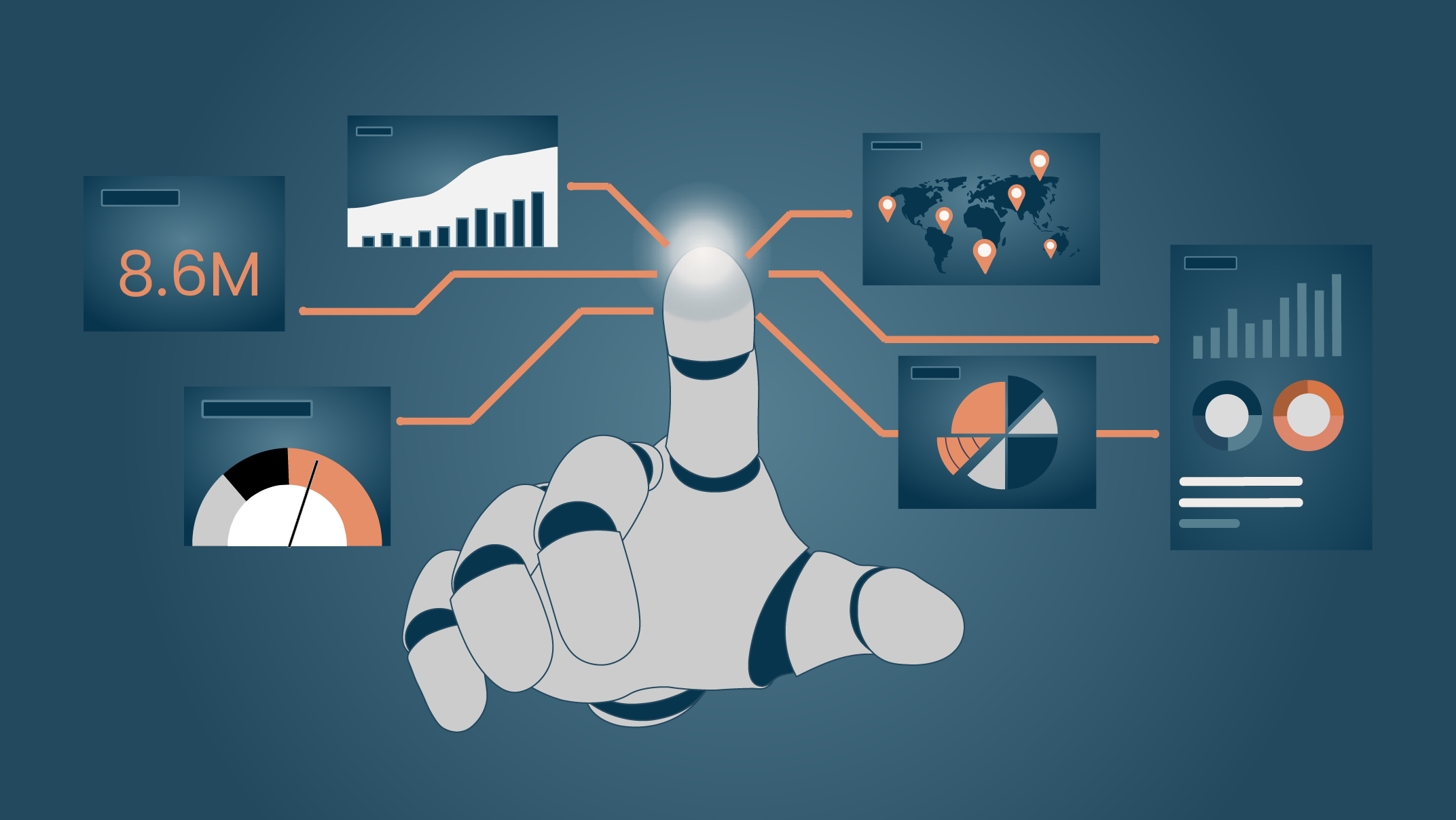Modern enterprises find it challenging to compete purely based on cost and quality, and are pressured to innovate fast and be able to respond better to the current demands of their clients. Enterprise software development is an integral part of such change. However, a conventional approach to coding may drag progress. To address it, numerous enterprises are now looking for low-code and No-code AI platforms.
With these platforms, they can create software more quickly and with less technological effort. They are transforming the manner in which businesses do software development. Now, we are going to discuss what no-code and low-code AI have to offer in the development of enterprise software today.
No-code and low-code tools are software solutions that make app creation easier. Instead of complex code programs, they use graphical user interfaces. Components are dragged and dropped to design an application.
In combination with AI, these platforms are even more effective. They allow enterprises to build smart, automated, and adaptive applications without a long coding effort.

Enterprises usually have a problem with the pace of software delivery. Development cycles traditionally take months or even years, which negatively impacts both client satisfaction and app competitiveness.
There is a solution to this problem: no-code and low-code AI platforms. Software enterprises consider them for the following reasons:
In the current stage of the world's rapid advancement, these benefits are essential to achieving digital transformation.
Artificial intelligence (AI) gives a new direction to these platforms. Applications made by AI-powered software development can learn, automate, and make decisions.
The following are some examples of how AI works with low-code and no-code platforms:
This AI integration enables enterprises to create more valuable, innovative applications.
Numerous companies now prefer using such platforms for a variety of solutions:
No-code and low-code AI platforms automate labor by reducing workflow. Workers are now not required to waste time entering data manually or authorizing. These processes are automated using the software, enhancing efficiency.
AI chatbots designed through No-code platforms can process customer enquiries 24/7. They offload the support teams and enable them to respond immediately, which raises customer satisfaction.
Using no-code AI apps allows for controlling recruitment procedures, employee onboarding, and performance monitoring. These tools ease out the HR work and enable the staff to focus on more forward-looking assignments.
Low-code assists companies in generating dashboards and reports within a short period. Due to this ability, users can get insights out of data without involving a data scientist or an IT team.
There are automated apps that can be used in tracking inventory, shipments, and sometimes delivery. These are responsive to instant changes, which reduces delay and expenses.
Apart from rapid application development, there are several other benefits of using these platforms. Some of them are as follows:
There is less coding, and it reduces the number of developers. Businesses avoid expenses on recruiting, training, and software updates.
Rapid application development enables a business to bring products to market at a quicker rate. The fact that companies can turn ideas and iterate rapidly provides them with a competitive advantage.
Software projects can accept contributions from non-technical teams. This partnership brings out better solutions that fit the business requirements.
With low-code platforms, enterprises can write custom code when necessary in the app development. As the company grows, it enables apps to be scaled and eventually adapted.
The fact that many apps may be created and maintained by business users decreases the amount of strain on IT staff. It frees IT from the excessive burden of working on initiatives that are vital to the purpose.

Although no-code/low-code AI offers numerous benefits, it also comes with several problems that need to be considered:
To overcome these challenges, companies need to make sure that they choose the right platform to build apps.
The demand for No-code and low-code AI platforms will increase in the future. These platforms will be more innovative and more accessible as the AI technology evolves.
We may anticipate:
Enterprises that adopt these platforms will be the trendsetters in innovation and advance their digital transformation processes.
Low-code and no-code AI platforms are revolutionizing enterprise software development. These enterprise automation tools are cheaper, faster, and more flexible for developing applications. With the help of AI-integrated low-code/no-code tools, you can develop smart, self-governing apps that promote productivity and growth.
Companies that use these platforms have an advantage over their rivals since they can improve collaboration and quickly create their applications. Even if there are challenges, the benefits of a well-managed process outweigh the risks.
So, the future of software development is tied to no-code, low-code AI platforms. Businesses that adopt these kinds of technology will be able to maintain their competitiveness in the modern, rapidly changing online market.

Failures often occur without visible warning. Confidence can mask instability.

We’ve learned that speed is not judgment. Explore the technical and philosophical reasons why human discernment remains the irreplaceable final layer in any critical decision-making pipeline.

Understand AI vs Human Intelligence with clear examples, strengths, and how human reasoning still plays a central role

Writing proficiency is accelerated by personalized, instant feedback. This article details how advanced computational systems act as a tireless writing mentor.

Mastercard fights back fraud with artificial intelligence, using real-time AI fraud detection to secure global transactions

AI code hallucinations can lead to hidden security risks in development workflows and software deployments

Small language models are gaining ground as researchers prioritize performance, speed, and efficient AI models

How generative AI is transforming the music industry, offering groundbreaking tools and opportunities for artists, producers, and fans alike.

Exploring the rise of advanced robotics and intelligent automation, showcasing how dexterous machines are transforming industries and shaping the future.

What a smart home is, how it works, and how home automation simplifies daily living with connected technology

Bridge the gap between engineers and analysts using shared language, strong data contracts, and simple weekly routines.

Optimize your organization's success by effectively implementing AI with proper planning, data accuracy, and clear objectives.